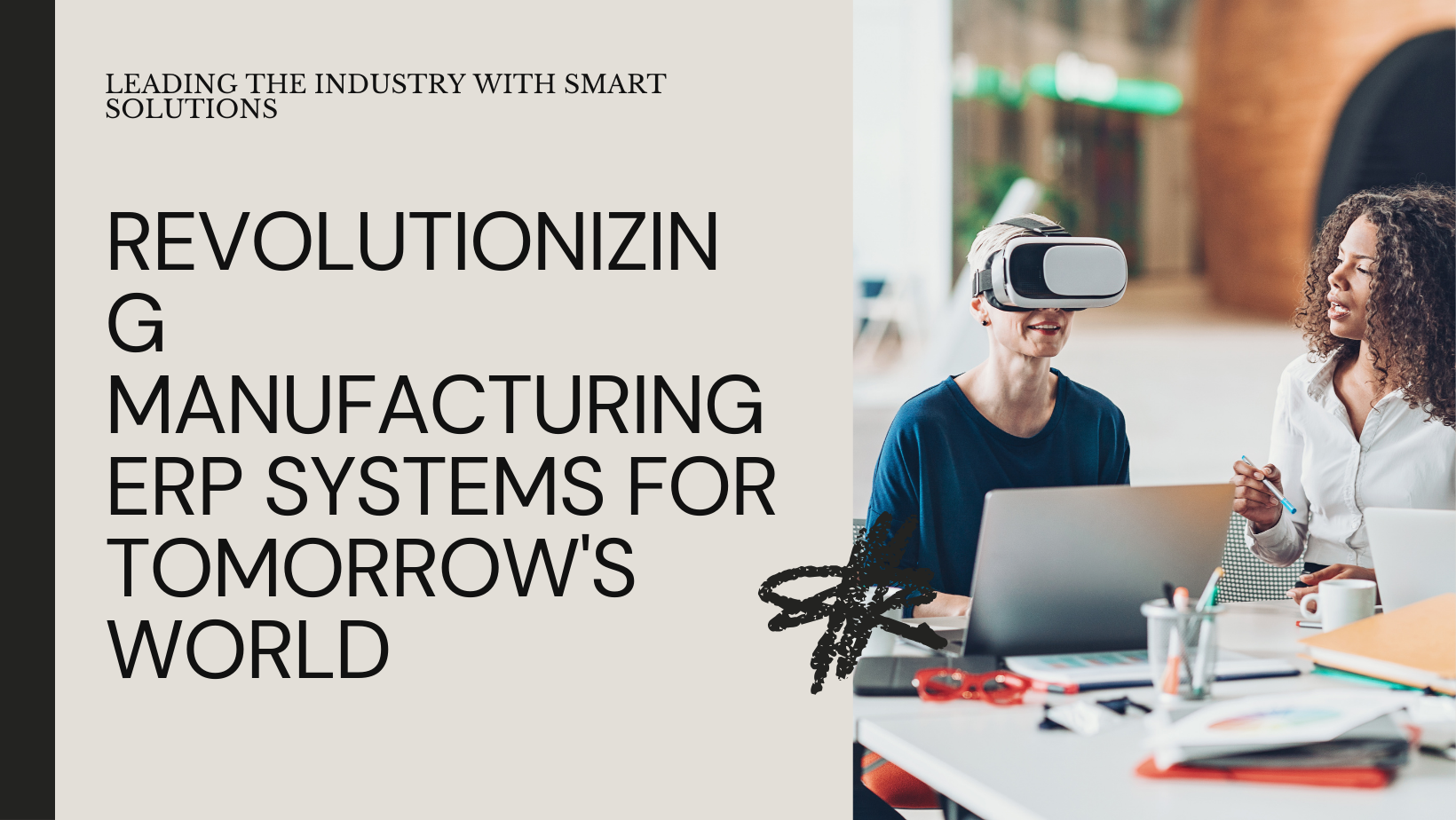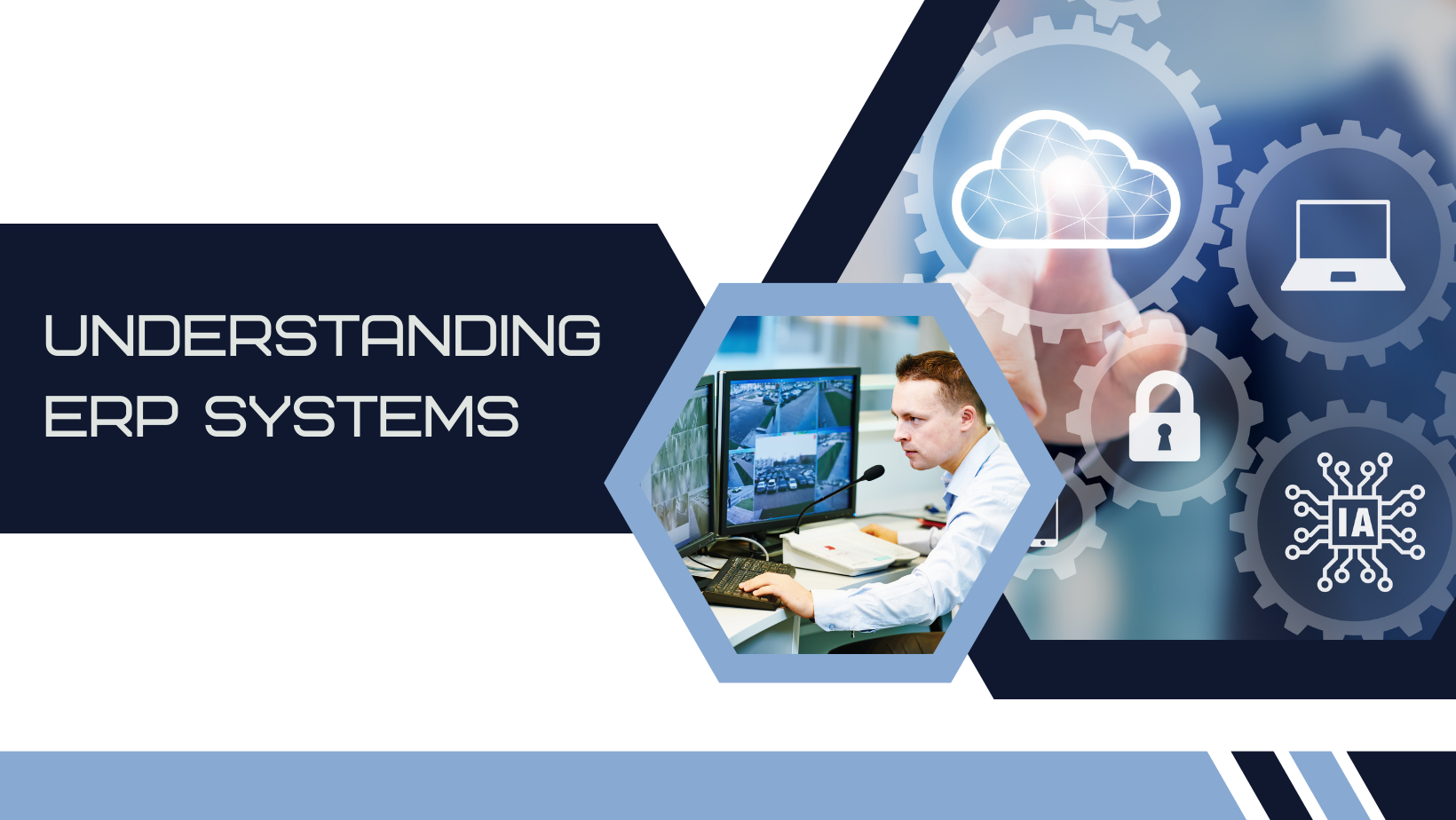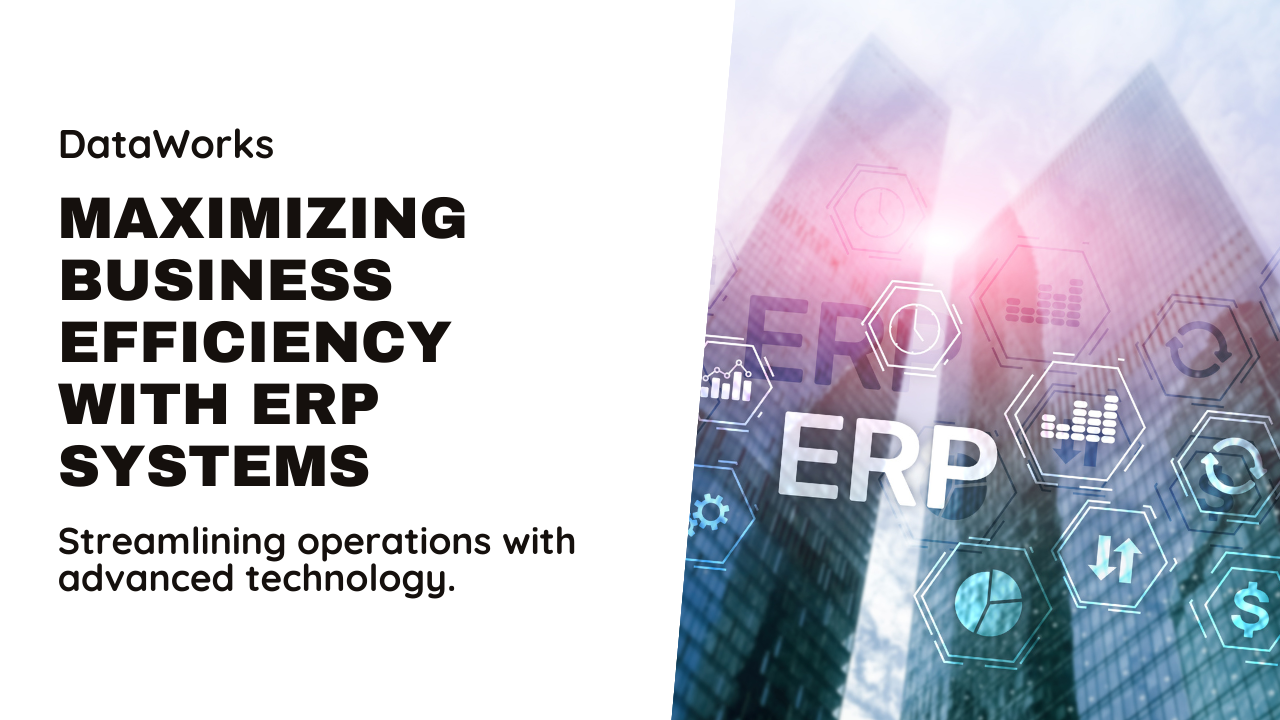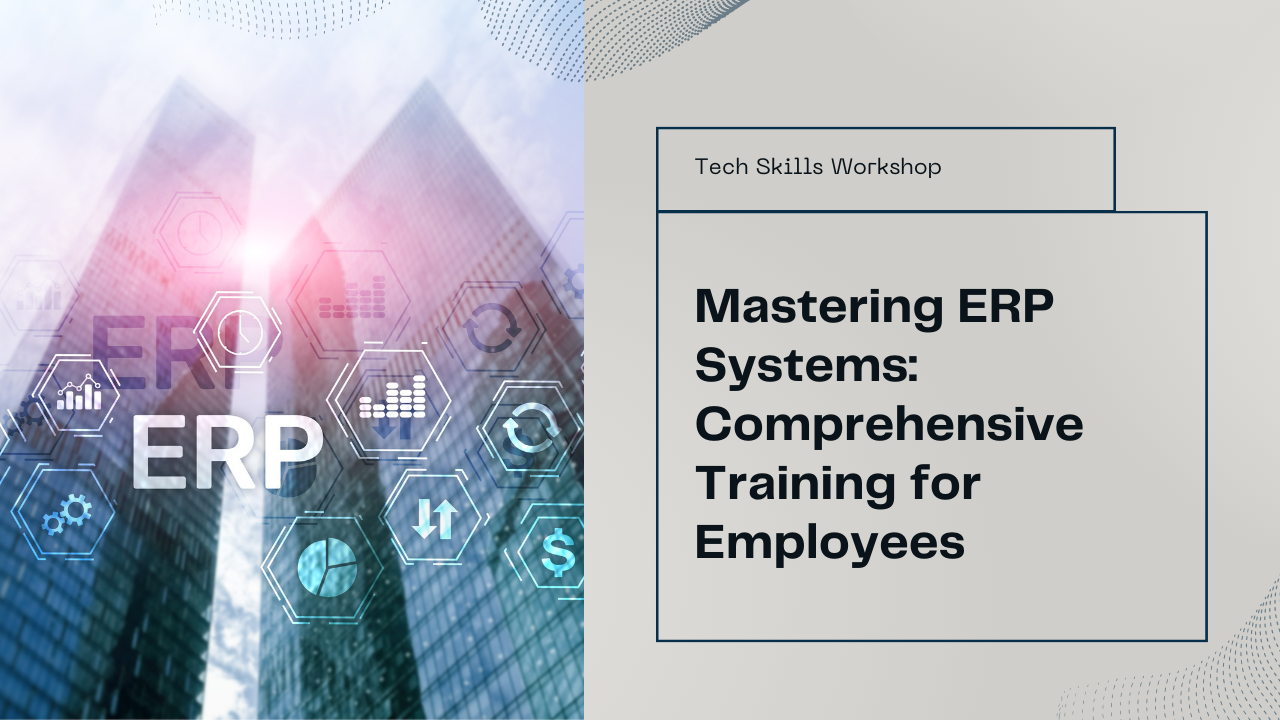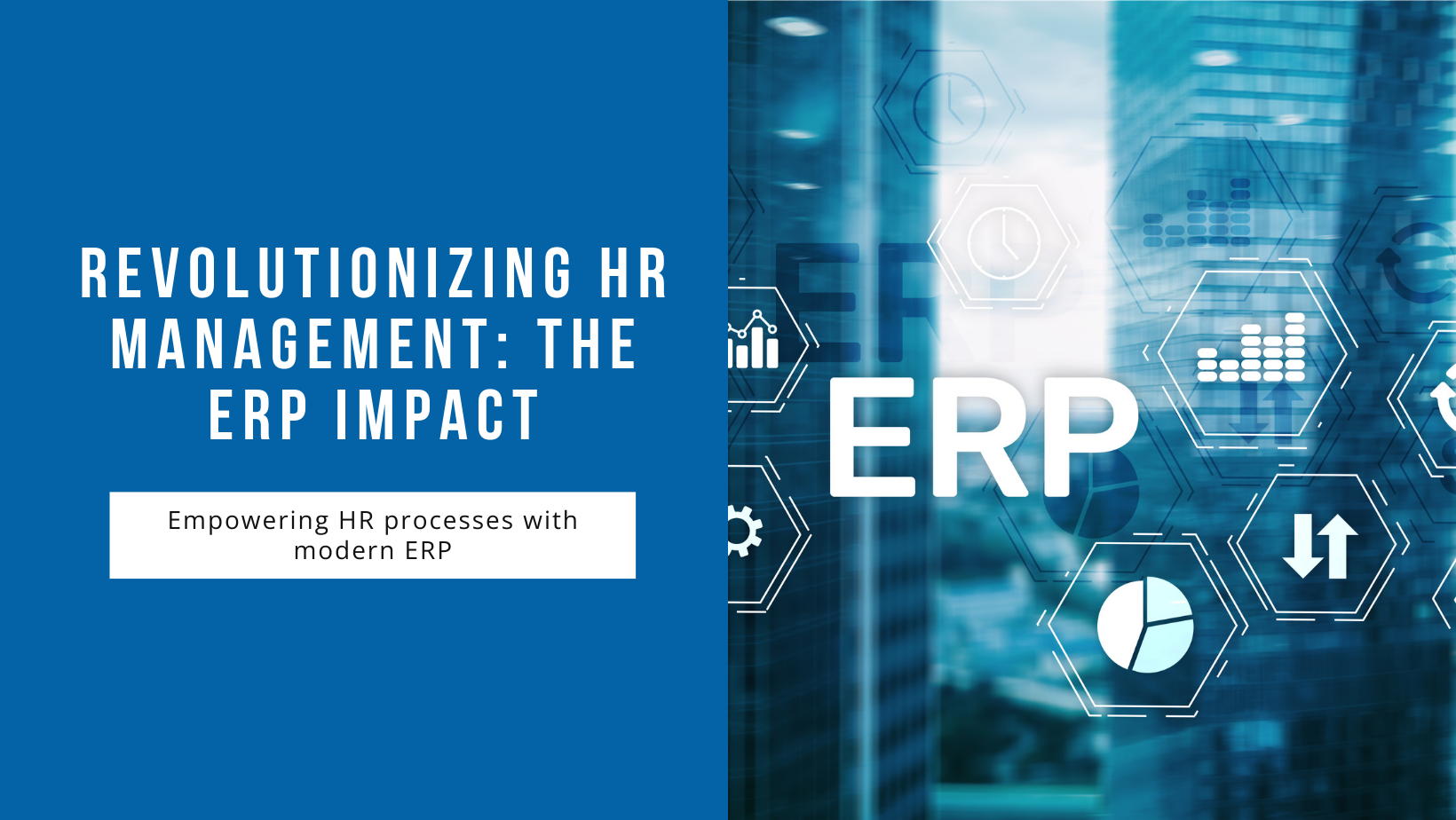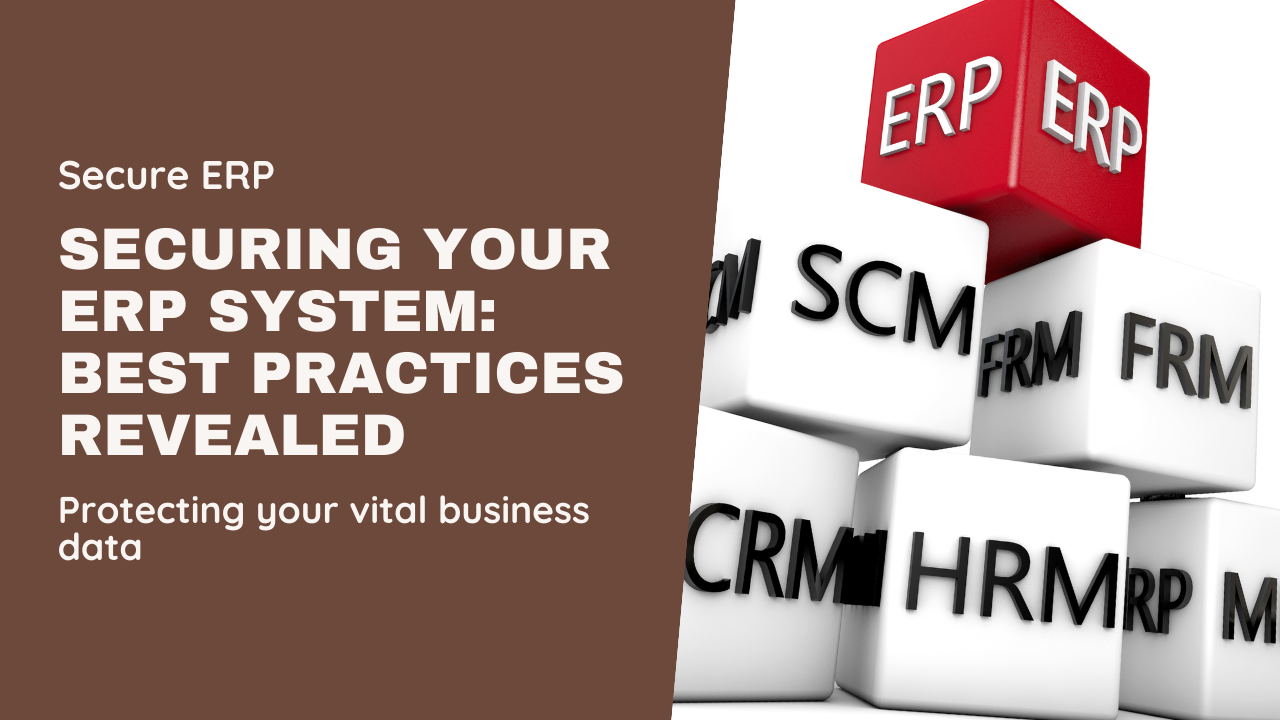The manufacturing industry is undergoing a significant transformation, driven by advances in technology and changing market dynamics. At the heart of this transformation is the integration of advanced Enterprise Resource Planning (ERP) systems. ERP systems have long been the backbone of manufacturing operations, providing the tools needed to manage resources, streamline processes, and ensure efficiency. As we look to the future, the role of ERP in manufacturing is set to become even more critical. This blog explores the future of ERP in manufacturing, highlighting key trends, technologies, and benefits that will shape the industry in the coming years.
The Evolution of ERP in Manufacturing
ERP systems have evolved significantly since their inception. Initially, ERP systems were primarily used for basic functions such as inventory management and production planning. However, with advancements in technology, modern ERP systems now encompass a wide range of functionalities, including supply chain management, customer relationship management, human resources, and financial management.
The integration of ERP systems with emerging technologies such as the Internet of Things (IoT), Artificial Intelligence (AI), and Big Data analytics is revolutionizing the manufacturing landscape. These technologies are enabling manufacturers to achieve unprecedented levels of efficiency, productivity, and agility.
Key Trends Shaping the Future of ERP in Manufacturing
Several key trends are shaping the future of ERP in manufacturing. These trends are driven by technological advancements, changing customer expectations, and the need for greater efficiency and sustainability.
1. Cloud-Based ERP Solutions
The shift towards cloud-based ERP solutions is one of the most significant trends in the manufacturing industry. Cloud-based ERP systems offer several advantages over traditional on-premise solutions, including:
- Scalability: Cloud-based ERP systems can easily scale to accommodate the growth of the business. This flexibility is particularly important for manufacturers looking to expand their operations.
- Cost-Effectiveness: Cloud-based solutions reduce the need for significant upfront investments in hardware and infrastructure. Manufacturers can pay for the services they need on a subscription basis, reducing overall costs.
- Accessibility: Cloud-based ERP systems can be accessed from anywhere, enabling remote work and improving collaboration among teams located in different geographical areas.
- Regular Updates: Cloud-based ERP providers offer regular updates and enhancements, ensuring that manufacturers always have access to the latest features and functionalities.
2. Integration with IoT
The Internet of Things (IoT) is transforming the manufacturing industry by enabling real-time monitoring and control of equipment, processes, and supply chains. The integration of ERP systems with IoT devices offers several benefits:
- Predictive Maintenance: IoT sensors can monitor the condition of equipment in real-time and predict when maintenance is needed. This helps prevent unexpected breakdowns and reduces downtime.
- Improved Inventory Management: IoT devices can track inventory levels in real-time, ensuring that manufacturers have the right materials available when needed. This reduces the risk of stockouts and overstocking.
- Enhanced Quality Control: IoT sensors can monitor production processes and detect deviations from quality standards. This helps manufacturers identify and address quality issues before they result in defective products.
3. Artificial Intelligence and Machine Learning
Artificial Intelligence (AI) and Machine Learning (ML) are revolutionizing the manufacturing industry by enabling data-driven decision-making and automation of complex tasks. The integration of AI and ML with ERP systems offers several advantages:
- Demand Forecasting: AI algorithms can analyze historical sales data and predict future demand with high accuracy. This helps manufacturers optimize production planning and inventory management.
- Process Optimization: AI can identify inefficiencies in production processes and recommend improvements. This leads to higher productivity and lower operational costs.
- Automated Decision-Making: AI-powered ERP systems can automate routine decision-making processes, freeing up human resources for more strategic tasks.
4. Advanced Analytics and Big Data
The availability of vast amounts of data from various sources is transforming the manufacturing industry. Advanced analytics and Big Data technologies enable manufacturers to derive actionable insights from this data. The integration of advanced analytics with ERP systems offers several benefits:
- Operational Insights: Advanced analytics can provide real-time insights into production processes, helping manufacturers identify bottlenecks and optimize operations.
- Customer Insights: By analyzing customer data, manufacturers can gain a deeper understanding of customer preferences and behavior. This helps in developing products that better meet customer needs.
- Supply Chain Optimization: Big Data analytics can help manufacturers optimize their supply chains by identifying trends and patterns in supplier performance, lead times, and transportation costs.
5. Enhanced Collaboration and Mobility
The future of ERP in manufacturing is characterized by enhanced collaboration and mobility. Modern ERP systems are designed to facilitate collaboration among teams and provide mobile access to critical information. This is particularly important in today’s fast-paced and globalized manufacturing environment. Key features include:
- Mobile Access: Mobile-enabled ERP systems allow employees to access real-time data and perform tasks from anywhere using their smartphones or tablets. This improves productivity and responsiveness.
- Collaboration Tools: ERP systems are increasingly integrating collaboration tools such as instant messaging, video conferencing, and document sharing. This enhances communication and coordination among teams.
6. Focus on Sustainability
Sustainability is becoming a key priority for manufacturers worldwide. ERP systems play a crucial role in helping manufacturers achieve their sustainability goals by providing tools for monitoring and optimizing resource usage. Key features include:
- Energy Management: ERP systems can track energy consumption in real-time and identify opportunities for reducing energy usage. This helps manufacturers minimize their carbon footprint and reduce costs.
- Waste Management: ERP systems can monitor waste generation and implement measures to reduce waste. This contributes to environmental sustainability and regulatory compliance.
- Sustainable Supply Chain: ERP systems can help manufacturers build sustainable supply chains by tracking the environmental impact of suppliers and implementing green procurement practices.
Benefits of ERP in the Future of Manufacturing
The integration of advanced ERP systems with emerging technologies offers several benefits that will shape the future of manufacturing:
1. Increased Efficiency
Advanced ERP systems automate routine tasks and streamline processes, leading to increased efficiency. Manufacturers can produce more with fewer resources, reducing operational costs and improving profitability.
2. Enhanced Decision-Making
The integration of AI, IoT, and advanced analytics with ERP systems provides manufacturers with real-time insights and data-driven decision-making capabilities. This enables manufacturers to make informed decisions and respond quickly to changing market conditions.
3. Improved Product Quality
By monitoring production processes in real-time and identifying quality issues early, ERP systems help manufacturers maintain high product quality. This leads to higher customer satisfaction and reduced costs associated with defective products.
4. Better Customer Service
Advanced ERP systems provide manufacturers with a comprehensive view of customer data, enabling them to understand customer needs and preferences better. This helps manufacturers deliver personalized products and services, leading to higher customer satisfaction and loyalty.
5. Greater Agility
The future of manufacturing is characterized by rapid changes and uncertainties. Advanced ERP systems provide manufacturers with the agility to adapt to these changes quickly. This includes the ability to scale operations, respond to market trends, and innovate rapidly.
6. Sustainability
As sustainability becomes a key priority, ERP systems provide manufacturers with the tools needed to monitor and optimize resource usage. This helps manufacturers achieve their sustainability goals while reducing costs and complying with regulations.
Conclusion
The future of ERP in manufacturing is bright, driven by technological advancements and changing market dynamics. The integration of ERP systems with emerging technologies such as IoT, AI, and Big Data analytics is revolutionizing the manufacturing landscape. These technologies are enabling manufacturers to achieve unprecedented levels of efficiency, productivity, and agility.
As manufacturers continue to embrace these advancements, the role of ERP systems will become even more critical. By providing real-time insights, automating processes, and facilitating collaboration, advanced ERP systems will help manufacturers stay competitive and meet the demands of a rapidly evolving market.
In conclusion, ERP systems are not just tools for managing resources; they are strategic assets that drive growth, innovation, and sustainability. As we look to the future, manufacturers that invest in advanced ERP systems and leverage emerging technologies will be well-positioned to thrive in the dynamic and competitive manufacturing industry.
